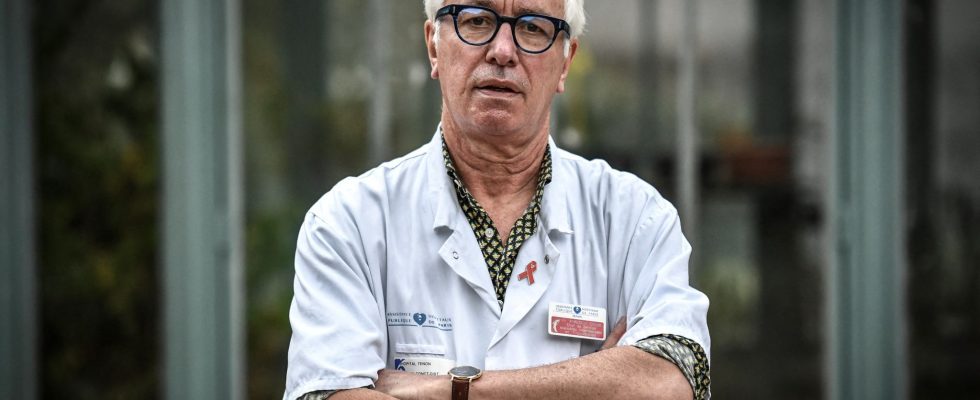Antidiabetics, antibiotics, anticoagulants, antidepressants, antipsychotics… More than two weeks after its publication, the list of 450 so-called “essential” drugs presented by François Braun, Minister of Health, and Roland Lescure, Minister of Industry, continues to attract critics in front of so many anachronisms, duplicates and even more omissions. Certainly the fact that “pFor these molecules, manufacturers will have to have four months of stocks“remains a commendable ministerial injunction which is unanimously approved by the learned societies contacted – five to our knowledge with notable omissions.
Mission just as consensual attributed to this list: to get the country out of its dependence on foreign drugs for usual drugs, at the origin of unprecedented shortages last year with, according to the National Agency for the Safety of Medicines and health (ANSM), 3,747 reports of supply disruptions in 2022 compared to only 871 in 2018. But on closer inspection, this list of 450, as highlighted by the magazine Prescrire, little suspected of making a pact with the pharmaceutical industry, is first of all “a non-exhaustive list of inconsistencies, which betrays a real lack of rigor”.
Too many duplicates
We find in this list of drugs whose therapeutic class is declined in full: in what interest? This is how the six drugs of the “prazole” family are active on peptic ulcer and reflux. Most are, however, interchangeable. And some, like lanzoprazole, are dismissed by (unsolicited) gastroenterologists because of their digestive side effects.
Similarly, in the list of vaccines – products which had not been offered by SPILF, the French-language infectious pathology society – there are vaccines against hepatitis A or hepatitis B in two forms, monovalent or bivalent without essential character if the availability of monovalent vaccines were ensured.
Epilepsy and psychiatry are not likely to be lacking with 26 antiepileptics deemed “essential” as well as 6 anxiolytics, 17 antidepressants and 18 antipsychotics. And four statins to treat high cholesterol.
Drugs whose prescription is to be limited
Some molecules have been deemed “essential” while their usefulness is questioned by the High Authority for Health (HAS). This is the case, for example, of fluindione (Previscan), which has been banned since 2018 by the HAS. “Given the risk of immunoallergic reactions to which fluindione exposes […] its use is now restricted to the sole renewal of the treatment of well-balanced patients with fluindione”, indicate its experts, who judge the actual benefit (SMR) of this drug “moderate”. We also note the presence of two amphetamines used in weaning smoking: bupropione and fenfluramine while this list is supposed to take into account “criticality or medical emergency”.
This list also includes products that are little or not prescribed, such as the antidepressants trazodone or bupronion.
Major omissions
It is undoubtedly the list of forgotten pathologies that surprises the most, from inflammation to HIV, via hepatitis, tuberculosis, bone fragility… Nonsteroidal anti-inflammatory drugs that are very (or even too) prescribed, such as ibuprofen and naproxen used in particular in various painful situations are absent. As for contraception, outside the emergency context, there is no oral contraception containing ethinylestradiol and levonorgestrel and no intrauterine device.
Absent also most of the inhaled drugs used in asthma (including ventolin) or chronic obstructive pulmonary disease (COPD); tuberculosis therapy (with the exception of rifampicin which cannot be used alone), treatments for glaucoma, treatment for herpetic keratitis (local aciclovir), drugs used to prevent malaria, antivirals used in treatment or in the prevention of HIV infection, those against hepatitis B or hepatitis C all considered non-essential even though their interruption due to unavailability can lead to dramatic individual and collective situations.
Special mention, as stipulated by the French Society for the Fight against AIDS (SFLS), to anti-HIV drugs that are not on this list although they have been recognized as essential and included in public health plans, particularly in the field of sexual health. This is the case of HIV post-exposure treatment (TPE), which is an emergency, and pre-exposure prophylaxis (Prep), which cannot be abruptly interrupted. The SFLS, which was not consulted for the establishment of this list, is also surprised “that in the document of the Ministry of Health and Prevention sexual health is reduced to only drug abortions and emergency contraception , in total contradiction with the National Sexual Health Strategy (SNSS)” of the same Ministry. Finally, we will note a very singular omission, in preparation for the necessary vaccination campaign announced by HAS for next fall : no vaccine against Covid-19 has been retained in the list of 450 “essential” products. Still, according to the Ministry, the list is “evolving”. It’s the least.
Professor Gilles Pialoux, infectiologist, is head of the infectious and tropical diseases department at Tenon Hospital (AP-HP), vice-president of the French Society for the Fight against AIDS (SFLS) and member of the support committee of the ‘ARSLA, association for the fight against Charcot’s disease (www.arsla.org). He is also a member of the French Association for the Study of the Liver (AFEF) and of the Society for Infectious Pathology in the French language (SPILF).
